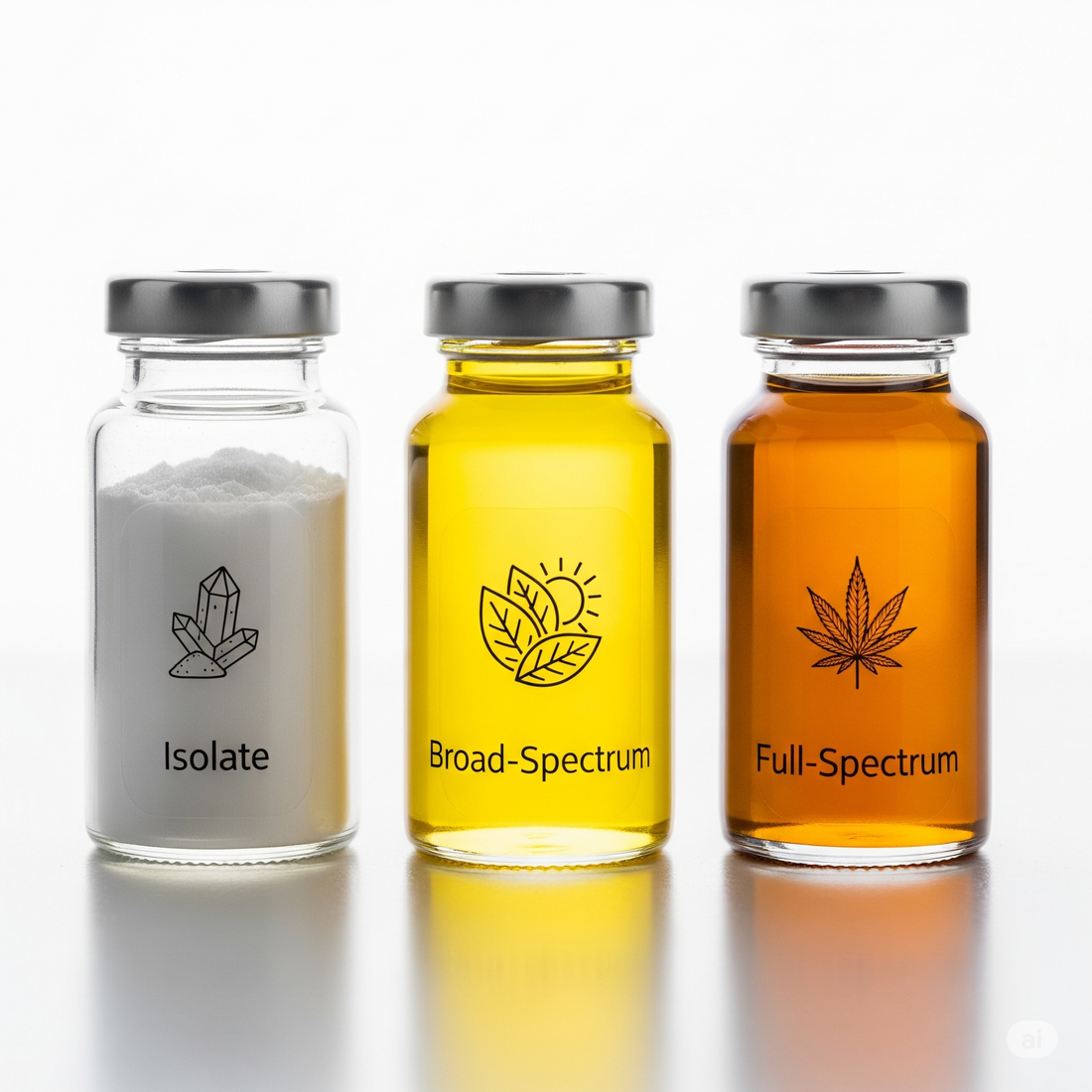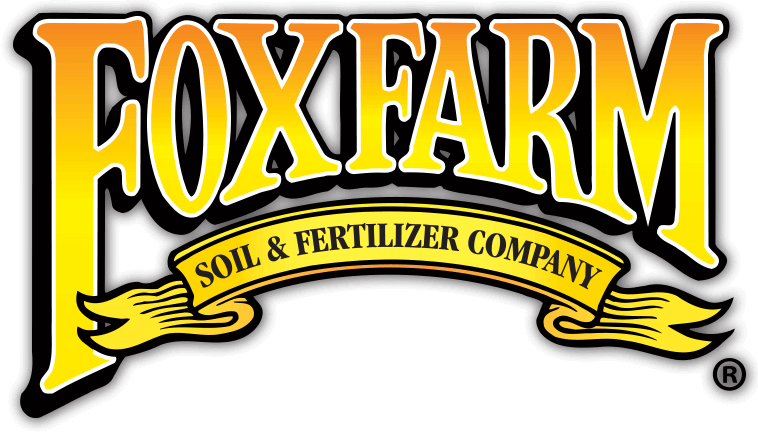
Full-Spectrum vs. Broad-Spectrum vs. Isolate: Which Hemp Extract is Right for You?
Share
Full-Spectrum vs. Broad-Spectrum vs. Isolate: Which Hemp Extract is Right for You?
Welcome back to the Kind Companion Hemp Dispensary blog, where we demystify the world of hemp to help you find your perfect companion in wellness!
As you explore the growing market of hemp-derived products, you've likely encountered terms like "Full-Spectrum," "Broad-Spectrum," and "Isolate." It can be a little overwhelming trying to understand the differences and, more importantly, figure out which one is best suited for your needs.
Don't worry, you're not alone! This is one of the most common questions we get. Today, we're breaking down these distinctions to empower you to make an informed choice for your well-being.
The Hemp Plant: A Symphony of Compounds
Before we dive into the different extracts, let's remember that the hemp plant (a variety of Cannabis Sativa) is incredibly complex. Beyond CBD (Cannabidiol) and THC (Tetrahydrocannabinol), it contains hundreds of other beneficial compounds, including:
-
Minor Cannabinoids: Like CBG (Cannabigerol), CBN (Cannabinol), CBC (Cannabichromene), and even trace amounts of various forms of THC (e.g., THCA).
-
Terpenes: Aromatic compounds responsible for the plant's scent and flavor, also believed to have therapeutic properties of their own.
-
Flavonoids: Plant compounds with antioxidant and anti-inflammatory properties.
-
Vitamins, Minerals, Fatty Acids: Essential nutrients present in the raw plant.
The way these compounds are preserved or removed during the extraction and refinement process defines whether an extract is an Isolate, Broad-Spectrum, or Full-Spectrum.
1. CBD Isolate: The Purest Form
What it is: CBD Isolate is exactly what it sounds like – pure, isolated CBD. During processing, all other compounds (cannabinoids, terpenes, flavonoids, plant waxes, oils, and THC) are meticulously removed, leaving behind 99%+ pure CBD in a crystalline or powder form.
Pros:
-
Zero THC: This is the main draw. If you have strict concerns about THC (e.g., drug testing at work, or simply prefer to avoid it completely), isolate is your safest bet.
-
No Taste/Smell: Being pure CBD, isolates are virtually odorless and tasteless, making them ideal for mixing into foods, drinks, or for those sensitive to the natural hemp flavor.
-
Precise Dosing: Easy to measure pure CBD dosage.
Cons:
-
Lacks Entourage Effect: Does not benefit from the synergistic interaction of other plant compounds (more on this below). Some research suggests isolate may require higher doses to achieve effects, and its efficacy might be less consistent than full-spectrum.
Best for: Individuals with zero-THC requirements, those sensitive to other cannabinoids or terpenes, or those who prefer a tasteless product.
2. Broad-Spectrum CBD: The Best of Both Worlds (Mostly)
What it is: Broad-Spectrum CBD is like a "middle ground." It contains a wide array of cannabinoids (like CBD, CBG, CBN, CBC), terpenes, and flavonoids found in the hemp plant, but the THC is undetectable or removed to non-detectable levels (often 0.0% THC).
Pros:
-
Undetectable THC: Offers peace of mind for those avoiding THC while still providing the potential benefits of multiple cannabinoids and terpenes.
-
Retains Entourage Effect: Allows for the synergistic interaction of various hemp compounds, potentially enhancing the overall therapeutic benefits compared to isolate.
-
Versatile: Can be found in many product forms, from tinctures to edibles and topicals.
Cons:
-
Less "Whole Plant": While rich in compounds, it's still missing THC and potentially some other trace cannabinoids present in full-spectrum.
-
Taste/Smell: May have a mild earthy taste or smell, depending on the terpenes present.
Best for: Those who want the benefits of the "entourage effect" without any trace of THC, or individuals subject to drug tests.
3. Full-Spectrum CBD: The Whole Plant Synergy
What it is: Full-Spectrum CBD extracts aim to capture the full array of cannabinoids, terpenes, flavonoids, and other beneficial compounds naturally present in the hemp plant. This includes CBD, minor cannabinoids, and most importantly, trace amounts of Delta-9 THC (up to the federal legal limit of 0.3% by dry weight), along with THCA and other beneficial cannabinoids.
Pros:
-
Maximum Entourage Effect: Considered the most effective due to the synergistic interaction of all the plant's natural compounds, including THC. This is where the concept of "the whole being greater than the sum of its parts" truly shines.
-
Richer Profile: Contains the most comprehensive range of compounds, which some users find provides a more profound and balanced effect.
-
Closest to Nature: Less processed and retains the plant's natural ratios of beneficial compounds.
Cons:
-
Contains Trace THC: While non-intoxicating at federally compliant levels (0.3% Delta-9 THC), continuous use could theoretically lead to a positive drug test for THC in rare cases.
-
Natural Taste/Smell: Often has a more pronounced "hempy" taste and aroma due to the presence of terpenes and other natural compounds.
Best for: Individuals who want the most comprehensive hemp experience and are comfortable with trace amounts of THC, believing in the power of the "entourage effect."
The "Entourage Effect": Why All Compounds Matter
The "Entourage Effect" is a widely discussed theory in the cannabis community. It proposes that the various compounds in the hemp plant – cannabinoids, terpenes, and flavonoids – work synergistically when taken together, enhancing each other's therapeutic effects and potentially modulating any unwanted side effects.
Think of it like an orchestra: each instrument (compound) plays its part, but when they play together, the overall symphony (the effect on your body) is far more powerful and harmonious than any single instrument playing alone. While more research is always ongoing, many users and preliminary studies support the idea that full and broad-spectrum products may offer more comprehensive benefits than isolates.
Which Hemp Extract is Right for YOU?
The "best" extract type truly depends on your individual needs, preferences, and circumstances:
-
For THC-Sensitive Individuals / Drug Testing Concerns: CBD Isolate or Broad-Spectrum CBD are your safest choices.
-
For Maximized Benefits / "Whole Plant" Approach: Full-Spectrum CBD is often preferred for those seeking the full potential of the entourage effect and who are comfortable with trace THC.
-
For Beginners: You might start with Broad-Spectrum to experience multiple compounds without THC, or Isolate for a very pure, predictable CBD experience. You can always explore Full-Spectrum later.
-
For Flavor Preference: Isolate is flavorless. Broad-spectrum can be mild, while Full-spectrum often has a distinct earthy taste.
Kind Companion Hemp: Your Trusted Source
No matter which type of hemp extract you choose, quality and transparency are paramount. At Kind Companion Hemp Dispensary, we stand by our commitment to providing only the highest quality products.
Every single batch of our Full-Spectrum, Broad-Spectrum, and Isolate products undergoes rigorous third-party lab testing. This ensures:
-
Accurate Cannabinoid Content: You know exactly what you're getting.
-
Purity: Free from harmful pesticides, heavy metals, and residual solvents.
We make all our Certificate of Analysis (COA) reports easily accessible on our website, so you can verify the integrity of your Kind Companion.
We invite you to explore our diverse range of tinctures, edibles, topicals, concentrates, and flower. Your perfect hemp companion is waiting!
www.kindcompanionhemp.com
admin@kindcompanionhemp.com
Disclaimer: The information provided in this blog post is for educational purposes only and should not be considered medical advice. Always consult with a qualified healthcare professional before making any changes to your health regimen or using any new products. Kind Companion Hemp products comply with federal hemp regulations.


